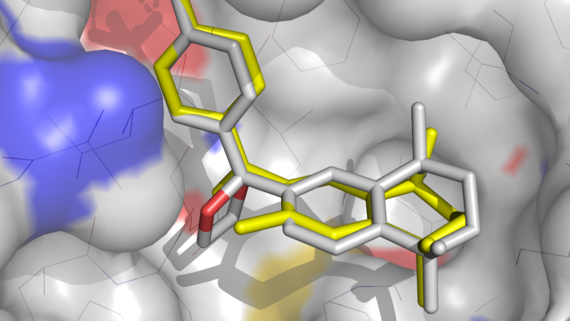The InnoMol Molecular Interactions Workshop

The InnoMol Molecular Interactions Workshop: June 1-3, 2015. at the Ruđer Bošković Institute.
It is our pleasure to announce the third workshop organized by the EU FP7 project InnoMol.
The Molecular Interactions Workshop will take place from June 1-3, 2015 at the Ruđer Bošković Institute, Zagreb, Croatia.
Non-covalent molecular interactions are essential for the life as we know, assuring highly selective or even specific recognition prior to any biochemical transformation. Thus, understanding of these interactions is fundamental for the study of almost all biological processes.
The aim of this workshop is to bring together experts in supramolecular chemistry, and experts in studies of structure and function of biomacromolecules (nucleic acids and proteins). The workshop will cover the following general topics:
- General concepts in non-covalent interactions
- Methods for the study of complex systems
- Case-studies on interactions with DNA/RNA/proteins
There will be no registration fee for the attendees. The workshop is primarily intended for Postdoctoral Researchers and PhD students. Nevertheless, other participants are welcome. The official language of the Workshop is English.
We can accept up to 60 participants to follow the lectures. However, due to
the limited lab space, we can accept a maximum of 12 participants for the hands-on sessions. Therefore, participants interested in attending the hands-on section are invited to write a motivation letter, describing their current research and the expected impact of the workshop participation for their future research and sent it to Dr Ivo Piantanida (pianta@irb.hr). Participants for hands-on section will be selected by the Workshop Scientific Board.
Registration for the Molecular Interactions Workshop is now open.
HANDS-ON demonstration: the study of DNA/RNA/proteins on newly acquired instruments: Isothermal Titration microCalorimetry (ITC), Differential Scanning microCalorimetry (DSC); Circular Dichroism (CD) / Linear Dichroism (LD) spectropolarimeter, and microviscometer; all mentioned being simple and fast methods for the elucidation of biomacromolecule structure and biomacromolecule-ligand interaction study. Also, the most renowned producers of some of aforesaid instruments will present novelties in the last generation instruments.
Hands-on workshop manager: Ivo Piantanida
Overview
Further details are available in the Hands-on Overview
Timeline
The detailed schedule for the workshop.
Workshop Presentations
Presentation list.
Partners and Institutions
Prof. Carsten Schmuck, Institut für Organische Chemie Universität Duisburg-Essen, Germany
Prof. Frank Würthner, Institut für Organische Chemie, Julius-Maximilians-Universität Würzburg, Germany
Prof. Jurij Lah, Faculty of Chemistry and Chemical Technology, University of Ljubljana, Slovenia
Prof. Gennaro Pescitelli, University of Pisa, Pisa, Italy
Prof. Peter Macheroux, Institute für Biochemie, Technische Universität Graz, Austria
Abstracts
Prof. Dr. Peter Macheroux, Graz University of Technology, Institute of Biochemistry
Gennaro Pescitelli, Dipartimento di Chimica e Chimica Industriale
Prof. Dr. Carsten Schmuck, Chair for Organic Chemistry, Institute of Organic Chemistry
Frank Würthner, Center for Nanosystems Chemistry, Universität Würzburg
Jurij Lah, Faculty of chemistry and chemical technology, University of Ljubljana
Dr. Raúl Pacheco-Gómez, Application Scientist - Malvern Instruments, UK
Organizers of the workshop
Workshop Scientific Committee
Organizing Committee